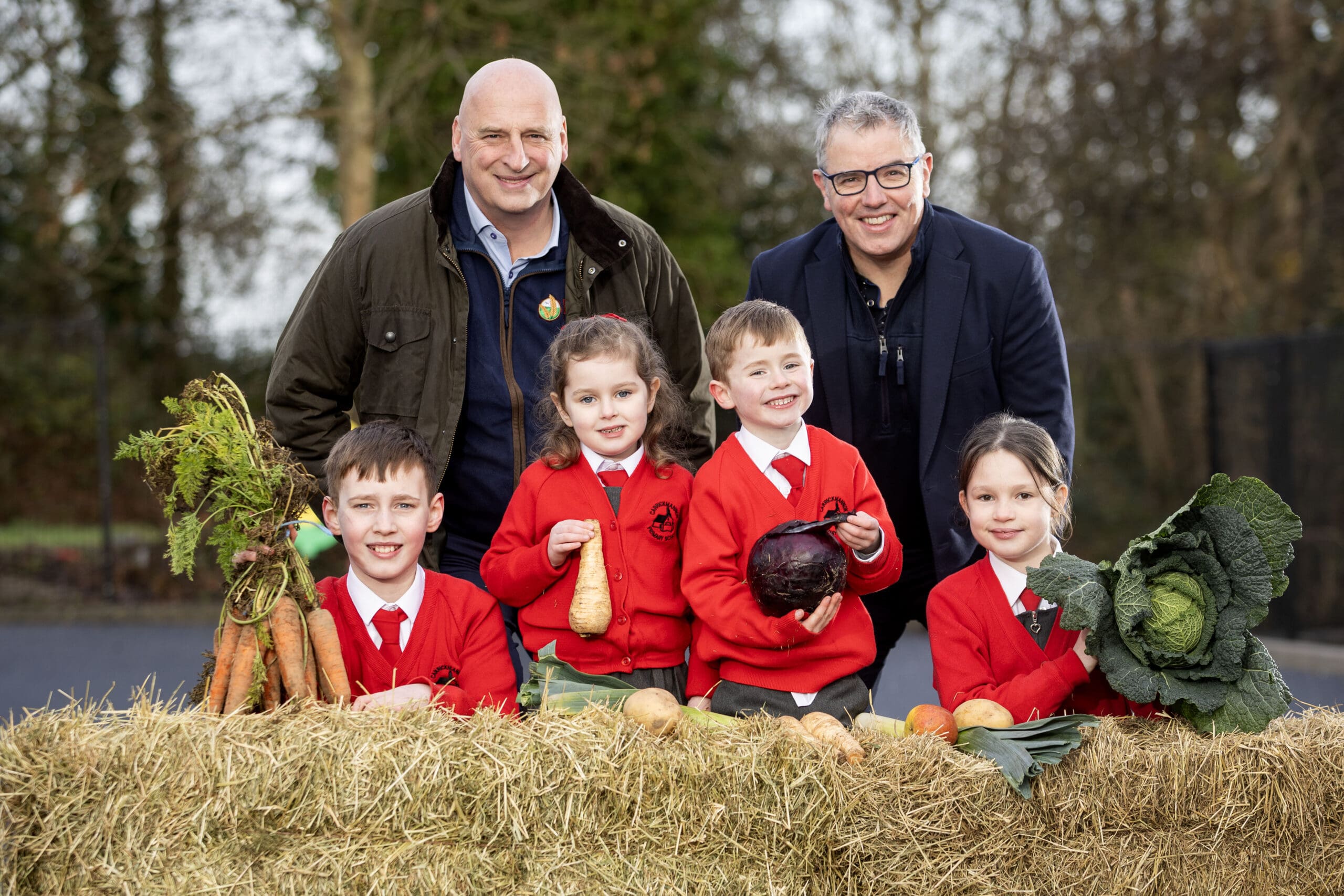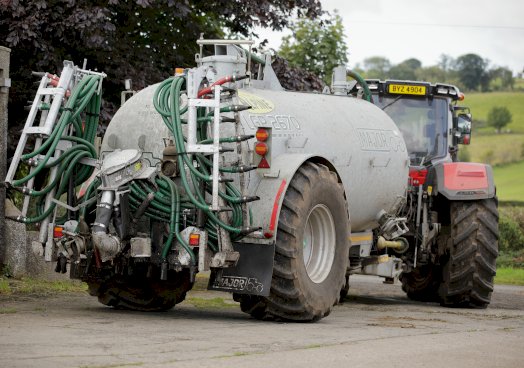
UFU senior policy officer Patricia Erwin welcomes Prof. Mark Emmerson, Queens University, to a recent meeting with UFU horticulture and arable chairs to learn about research being progressed for a new horticulture strategy.
Commodity Watch by UFU senior policy officer Patricia Erwin
NAP
The Ulster Farmers’ Union arable and horticulture committees have discussed and are progressing input to the UFU consultation Nutrients Action Programme response. This consultation has highlighted the importance and consequences of how a flawed DAERA methodology, lack of robust science, with no economic impact assessment, and the absence of meaningful, inclusive, timely stakeholder engagement, has cultivated real concern for farmers and the wider industry. The UFU encourage members to respond and highlight their concerns.
Horticulture pilot scheme open for expression of interest
Expressions of interest for two schemes under the overarching horticulture pilot scheme in Northern Ireland are now open. The scheme aims to foster innovation, support sustainable practices and promote growth within the horticulture industry. This four-year scheme, worth £7.7 million, aims to develop cooperation among growers, provide capital funding for the adoption of innovative crops, technologies and systems, and support the development of new growers.
The horticulture pilot scheme is made up of three individual elements:
- Pilot one: Sustainable sector growth groups that aim to assist in the development of commercial horticulture production by providing specialist agronomy, financial and supply chain advice whilst facilitating greater collaboration amongst group participants.
- Pilot two: Innovation driver and support scheme will offer horticulture growers/businesses financial assistance to invest in crops, technologies and systems which are new to Northern Ireland.
- Pilot three: Growers’ training and support pilot scheme aims to provide opportunities for continuous professional development within the horticulture industry through the provision of training and specialist support.
Expressions of interest for pilot schemes one and three opened on Tuesday 8 July and can be submitted up to 5:00p.m on September 30, 2025.
UFU veg and top fruit committee members will learn more details about these pilots at a special meeting scheduled for early August 2025.
Queens – Horticulture strategy
Mark Emmerson, Professor, School of Biological Sciences, Institute for Global Food Security, met recently with UFU horticulture / arable chairs: Trevor Gabbie (vegetables), John Gilpin (top fruit) and Richard Orr (cereals & potato), with Lawrence White and UFU senior policy officer P Erwin, for arable and horticulture. Balmoral Show Healthy Horticulture gave an opportunity for introductions and follow up invitation to meet and learn more about the Co-Centre for Climate + Biodiversity + Water work being progressed by Queens University Belfast. The discussion focused on engagement opportunities to work with medium to larger horticultural producers across NI to develop a horticultural strategy that will address the needs of this sector. This work is in its infancy and UFU look forward to engaging further with Queens and learning more about strategy recommendations for horticulture.
Local cereal harvest now underway. Buying local grain is a ‘win-win’ for both livestock and arable farmers
Farmers in Northern Ireland are encouraged to buy local grain as it makes ‘good business sense’ to have a shorter supply chain.
The UFU seeds and cereals policy committee chair Richard Orr, said this farm to farm supply will add provenance to a product when a farmer can say his or her animals are fed with locally sourced NI Farm Quality Assured grain. Furthermore, not only is it good for business, it also benefits the environment, as buying locally grown grain will help to reduce a farm business carbon footprint and also boost its environmental credentials.
Buying local means you can deal directly with local businesses and growers, often neighbouring farms. UFU deputy president Glenn Cuddy, encourages those with grain and those who need grain, to do business over the coming weeks and furthermore put in place plans for longer-term supply chain arrangements. The UFU encourage those who are looking to purchase grain to support their arable neighbours and buy direct from them, talk to local grain growers and discuss your needs and possible options.
UFU chair Richard Orr said that buying local grain is without doubt a ‘win-win’ for both livestock and arable farmers, and it injects cash into the rural economy. Our arable farmers have risen to the challenge, producing quality assured grain and proteins for the market. Now they need the support of everyone in the agricultural industry, farmers and millers, as well as consumers, to buy local and help sustain the future of the arable sector.
Our Northern Ireland arable farmers produce grain to the highest standards, and it is fully traceable, two key aspects which are needed to secure consumer confidence in a product. Good quality local straw is also available, and UFU encourage our livestock farmers to enquire about what is on their doorstep before importing.
Keeping everything as local as possible makes the food production process more efficient and sustainable and this argument is well made in the sectors response to NAP.




